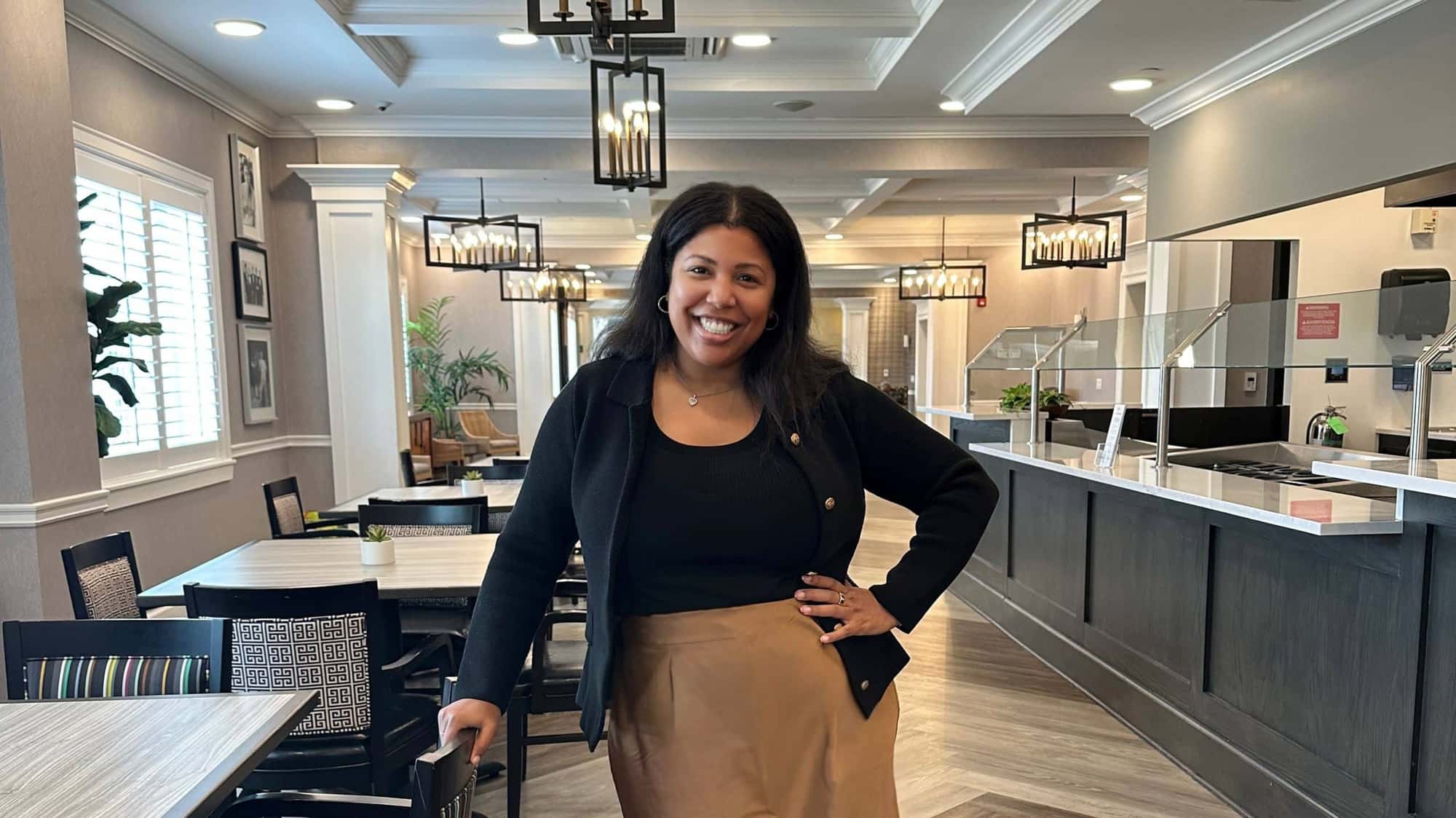In the $4.7 trillion hospitality industry, a unique niche that merges the sophistication of business culture with warmth and service thrives. Corporate hospitality is where business relationships are forged over fine dining, objectives are met in luxurious settings and impeccable service is a strong foundation for making professional connections.
This article explores what distinguishes corporate hospitality, describing its role in modern business and uncovering the intricacies that make it essential to developing successful partnerships and ventures, as well as how you can join this exciting sector.
What is corporate hospitality?
This comes into play when businesses need to impress clients, host events or visit other sites. It strategically deploys hospitality services and experiences to strengthen business relationships, entertain clients and help businesses achieve their objectives.
Unlike standard hospitality businesses, corporate hospitality has to focus on ensuring guests get an experience that reflects the business purpose of their visit. This often means events for large groups of people, such as conferences and awards dinners. This combination creates opportunities for networking, brand improvement and client engagement, which are crucial in competitive industries.
The importance of corporate hospitality in today’s business world
Hospitality can be critical in shaping organizational success. It serves as a powerful tool for:
- Building relationships: nurturing and strengthening relationships with clients, partners and stakeholders. By hosting events, dinners and outings in carefully curated environments, businesses can create memorable experiences that build trust, loyalty and long-term partnerships
- Improving brand image: the way a company hosts and interacts with guests in corporate hospitality settings reflects its values, professionalism and commitment to excellence. Well-executed hospitality can significantly boost brand perception and differentiate a business from its competitors
- Facilitating business development: from prospecting new clients to closing deals, corporate hospitality offers a conducive environment for business discussions and negotiations. It allows businesses to showcase their capabilities, products and services in a relaxed yet professional atmosphere that encourages productive conversations
- Employee engagement and motivation: beyond external relationships, corporate hospitality also plays a role in boosting internal morale. Employee recognition events, team-building activities and corporate retreats all contribute to a positive work culture, building loyalty and productivity among staff
- Marketing and public relations: hosting well-publicized corporate events and sponsorships can generate positive media coverage and strengthen a company’s public relations efforts. It provides opportunities to showcase corporate social responsibility initiatives and community involvement, further helping brand visibility and reputation
Key elements of exceptional corporate hospitality
In delivering memorable experiences and building meaningful connections, great corporate hospitality hinges on mastering a few essential components. The followingg elements not only elevate service but also help the overall impact of business interactions:
- Visual appeal and first impressions: the aesthetics and ambiance of corporate hospitality venues set the stage for impactful interactions. From elegant décor to seamless logistics, creating a visually appealing environment improves the overall guest experience and leaves a lasting positive impression
- Attentive communication: active listening, understanding client needs and anticipating preferences to ensure tailored service. Clear and effective communication also builds trust and encourages emotional connections with clients
- Crafting an unforgettable experience: exceptional corporate hospitality goes beyond routine events; it creates something memorable. Tailoring activities, menus and entertainment to align with guest preferences and business objectives elevates the event from ordinary to extraordinary, leaving a lasting impact on attendees
- Focusing on employee wellbeing: happy and motivated staff are integral to delivering exceptional hospitality. Prioritizing employee wellbeing through training, recognition programs and work-life balance initiatives boosts morale and also helps improve service delivery and guest satisfaction, especially for business guests
Innovative corporate lodging solutions
From luxury hotels to serviced apartments and extended-stay accommodations, there are many options available to businesses for increasing comfort, convenience and productivity for traveling professionals. These solutions not only prioritize amenities and location but also emphasize flexibility and cost effectiveness, catering to the dynamic demands of corporate travelers.
Serviced apartments offer a home-like environment with the convenience of hotel amenities, making them ideal for extended stays and team relocations. Meanwhile, boutique hotels provide unique experiences tailored to individual preferences, combining bespoke service with upscale facilities to boost the overall guest experience. Whether seeking luxury, convenience or flexibility, businesses can choose from various modern accommodation solutions that align with their specific travel needs and corporate culture.
The role of technology
Advanced booking platforms and mobile apps streamline the reservation process, allowing businesses to secure accommodation and transport with ease and flexibility. Virtual tours and interactive maps provide travelers with insights into lodging options, amenities and nearby attractions, facilitating informed decision making.
Additionally, digital check-in/out systems and personalized guest preferences enable seamless experiences, while data analytics and feedback mechanisms empower businesses to optimize travel policies and improve satisfaction. All these technologies can be helpful when handling busy corporate guests.
Planning and executing successful corporate events
From selecting the ideal venue and coordinating logistics to designing engaging agendas and ensuring seamless execution, every aspect of event planning plays a crucial role in achieving objectives. Effective communication, stakeholder engagement and contingency planning are essential to overcome challenges and deliver exceptional experiences that align with corporate goals.
The integral role of food and beverage in corporate hospitality
From receptions and business lunches to formal dinners and catered meetings, F&B offerings reflect a company’s commitment to excellence and guest satisfaction.
Catering to varied preferences and accommodating specific requirements ensures that all guests feel valued. F&B services create a welcoming atmosphere conducive to productive discussions, networking opportunities and building lasting business relationships.

Careers in corporate hospitality: roles and opportunities
If you are interested in hospitality for businesses, plenty of career paths might suit you. Each one is vital in managing and delivering exceptional business client and stakeholder experiences. From event management to guest relations, the roles described below all contribute to building strong business relationships and increasing organizational success:
- Event management: oversee the planning, coordination and execution of events, ranging from executive meetings and conferences to gala dinners and product launches. Event managers ensure seamless logistics, manage budgets, coordinate vendors and handle all aspects of event operations to deliver memorable experiences that align with business objectives
- Guest relations and client services: providing personalized assistance and ensuring exceptional service for VIP clients, stakeholders and business partners. They anticipate client needs, handle inquiries, resolve issues promptly and build rapport to strengthen business relationships
- Hospitality sales and business development: identifying new potential markets, cultivating client relationships and promoting hospitality services and experiences. They negotiate contracts, propose tailored solutions and collaborate with internal teams to customize offerings that meet client requirements and drive revenue growth
- Corporate concierge services: specialize in meeting the unique needs and preferences of high-profile executives and business guests. They arrange travel logistics, secure reservations at exclusive venues, coordinate customized experiences and provide 24/7 support to ensure a seamless and enjoyable stay
- Venue management and operations: oversee the day-to-day running of corporate hospitality venues, ensuring facilities are maintained to high standards and guest experiences are optimized. They manage staff, implement safety protocols, handle logistics and work with event planners to ensure events run smoothly and efficiently
Pursuing a career in corporate hospitality can be much easier if you get the right education. One of the best ways to get started is to study for a relevant degree in a field such as hospitality or hotel management.
Dive into the world of corporate hospitality
Learn how to offer world-class corporate hospitality with tuition and expertise from Glion

The skills required to excel in the corporate hospitality sector
Reaching the top in this branch of hospitality requires a unique blend of interpersonal, organizational and strategic skills. Professionals in this sector should be able to demonstrate:
- Customer focus: the ability to understand and anticipate client needs, deliver exceptional service and build long-term relationships
- Communication skills: strong verbal and written communication is essential for interacting with clients, stakeholders and team members effectively
- Problem-solving abilities: the capacity to resolve issues promptly, make decisions under pressure and adapt to changing circumstances to ensure seamless guest experiences
- Attention to detail: precision in planning and executing events, managing logistics and maintaining high standards of service and hospitality
- Team collaboration: being able to work with people from a wide range of departments, vendors and partners to deliver cohesive and successful hospitality experiences
- Adaptability and flexibility: the capacity to thrive in a fast-paced environment, manage multiple priorities and respond swiftly to client demands and evolving industry trends
- Business acumen: understanding business principles, budget management, sales strategies and revenue generation helps you appreciate the needs of the businesses you serve, which will contribute to organizational growth and profitability
Conclusion
Corporate hospitality is the heart of strategic relationship-building and business success. Setting itself apart from traditional hospitality, it uses luxury, personalized service and meticulous planning to help build meaningful connections and achieve organizational goals.
By prioritizing exceptional guest experiences, using innovative lodging solutions, embracing technological advancements and orchestrating flawless events, corporate hospitality not only boosts brand reputation but also builds loyalty among clients, stakeholders and employees.
As businesses continue to recognize the pivotal role of hospitality in driving growth and profitability, investing in these elements will be key to staying ahead in a business environment where relationships and experiences hold profound value.
If you think a career in corporate hospitality might be right for you, the best place to get started is by studying for a degree in hospitality from a world-class school such as Glion.
Photo credits:
Main image: Getty Ezra Bailey









